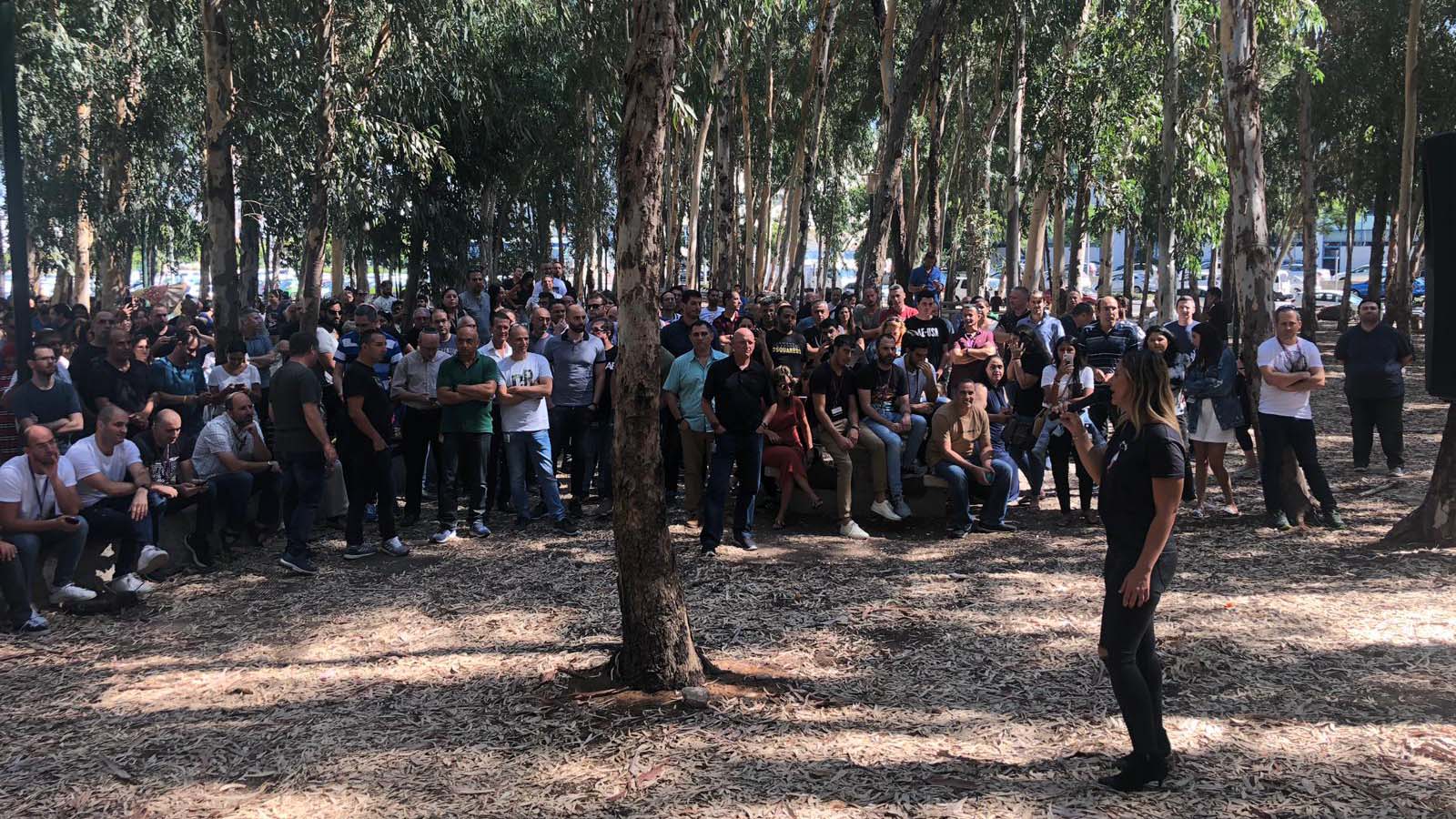
The holidays are usually a relaxed time of year in Israel, spent with family and friends. But for hundreds of employees in the telecom sector, this year's Rosh Hashana was spent in a struggle against the mass layoff announced just before the beginning of the Jewish New Year. Israel's two largest telecom companies, mobile operators Cellcom Israel Ltd and Pelephone Communications Ltd, each announced to the media their intention to lay off hundreds of workers in the coming months, with no prior notice to employees.

In response to the announcement, the union of telecom workers immediately declared a strike, which brought the spat to a conclusion within a week and a half. Arnon Bar David, head of the Histadrut, came out in favor of the strikers, personally taking part in the negotiations. The workers have since received a commitment from the management to freeze layoffs, and seek to negotiate and reach agreements during the Sukkot, which ends next week.
The workers success in blocking the layoffs highlights just how much labor relations have shifted in Israel's telecom industry in recent years. In 2012 Pelephone workers in Israel led a globally unprecedented wave of unionization, which has since spread across the telecom industry. Since 2012, negotiations with the managements have largely improved the precarious working conditions that characterize the industry.
Management style
Cellcom workers got wind of the management's intentions to lay off 600 of the company's workers on the news. Just a few hours later, Pelephone, another large telecom company, announced its own plans to lay off hundreds of employees.
Even though both companies have union representatives, the announcements were made to the media, with no prior dialogue with the unions involved. This is a strategy often practiced by companies wishing to appease the market. The sad reason for this is that the public announcement of the layoffs wasn't meant for the workers, but for the company's capital market investors. This has become the new norm for Israeli companies: first they announce a massive layoff to please investors, and only then do they sit down and start negotiations with the workers.
This sparked immediate action by the Internet and Tech union, the telecom workers union at the Histadrut. In Cellcom’s headquarters in Netanya, work was stopped completely at the direction of the workers’ committee chair Maya Yaniv. At Pelephone, the workers led by committee chair Yehiel Shemen interrupted a management meeting. The management in both locations then agreed to freeze all layoffs and enter into negotiations with the unions.
Admittedly, Cellcom has not been doing well recently. The company announced a 35 million shekel loss in the second quarter of 2019, after losing 64 million shekels total in 2018. But the reason for this is not a sudden decrease in demand for cellular phone services, or an isolated error made by the company's management. Rather, it is the consequence of government policy concerning the telecom market in recent years that has hit all three large telecom companies.

In Israel, the three older telecom companies own and run all cellular infrastructure. These three companies are responsible for the upkeep of the physical infrastructure and bear all expenses. But in recent years, the Ministry of Finance has been implementing what it calls a free competition policy. The government decided to introduce new competition into the telecom market, bringing a wave of new budget phone companies onto the market. These new companies are known as "virtual companies" because of one key aspect of the policy: the older companies were to allow newer companies to use their existing infrastructure,
In reality, the older cellular companies – which maintain the cellular networks – have been forced to allow the new companies to make use of the networks without bearing the costs of the infrastructure. The new companies have forced prices down in a manner which today threatens the continued existence of the veteran companies, which employ far more workers. This has brought the older telecom companies to the brink.

“We are for competition, we want competition, but it has to be for the benefit of the people, improving service,” said Yaki Halutzi, chair of the Internet and Tech union at the Histadrut.
In a meeting of the cellular workers’ committees assembled by Bar-David at his offices, the heads of each of the committees and the competing companies clarified that the current situation in the Israeli cellular market may bring severe harm in the future to Israeli cellular infrastructure – infrastructure which serves both the general public and the security and emergency services.
A new kind of union man
The workers’ committees in the cellular industry are a unique phenomenon in the Israeli workforce. Traditionally, telecom employees are considered "white collar workers", and are usually not represented by unions. In Israel, this has led to harsh working conditions in the mobile companies, with often precarious contracts
The change in regulation which threatened their employment security led to the establishment of the first workers’ committee at Pelephone in 2012 – a victory which was hard-won after a difficult struggle against a very aggressive management. Pelephone workers went on a 28 day strike with the demand that the management recognize their union. This was eventually achieved, together with a historic decision by the National Labor Court banning employers from speaking out and working against their workers’ unionizing effort.
This legal decision and the success of the unionization led to a wave of unionization of hundreds of thousands of workers in Israel, including workers of all of the large cellular companies, as well as additional workers in the internet and tech fields. A new union was also established at the Histadrut to handle matters for workers in this industry. The Histradrut is unique in that – as opposed to the worldwide trend of decreased unionization – it has grown in recent years and brought new sectors into its fold.






